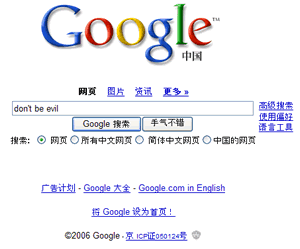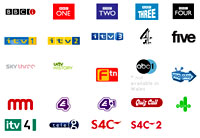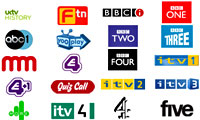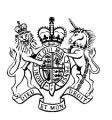 Google has struck up a partnership with the US National Archives to digitise their historic movie collection and provide free access to the public through their video search service.
Google has struck up a partnership with the US National Archives to digitise their historic movie collection and provide free access to the public through their video search service.
Initially offering 101 digitised films, the public will be able to view World War II newsreels and footage of the Apollo 11 mission and other Nasa material online.
Also included in the pilot are reels from a 1930s documenting the establishment of the national park system (be steady, my beating heart).
In a statement, US archivist Allen Weinstein declared the partnership as, “an important step for the National Archives in its goal of becoming an archive without walls.”
 “Our new strategic plan emphasises the importance of providing access to records anytime, anywhere. This is one of many initiatives that we are launching to make our goal a reality,” he added.
“Our new strategic plan emphasises the importance of providing access to records anytime, anywhere. This is one of many initiatives that we are launching to make our goal a reality,” he added.
Google censoring Iraq content?
But what Google gives with one hand it appeared to be taking with another as The Register reported that the search engine giant was blocking US viewers from seeing a piece of Iraq footage on their video service.
Although available to non-US viewers, the innocuous clip – which showed US military personnel detonating a roadside bomb in a controlled explosion – was unavailable in the US with The Register (and, to be fair, several others) citing this as an example of a new regime of political censorship at Google.
 Happily, this was not the case, as a Google spokesperson explained: “Video uploaders, using Google Video’s ‘Advanced Options’ feature, can choose to blacklist countries. In this case the uploader blacklisted the US and only the US. When uploading the video the content owner set a preference not to show this content to users in the US.”
Happily, this was not the case, as a Google spokesperson explained: “Video uploaders, using Google Video’s ‘Advanced Options’ feature, can choose to blacklist countries. In this case the uploader blacklisted the US and only the US. When uploading the video the content owner set a preference not to show this content to users in the US.”
Of course, had Google not agreed to their highly controversial deal with China to censor search results recently, people would be less inclined to think them capable of censorship closer to home…
Google Video censors Iraq footage – for US only
National Archives via Google Video
 For the second time in a fortnight, coastguards have been scrambled after a digital TV box sent out a signal on a wavelength used by ships in distress.
For the second time in a fortnight, coastguards have been scrambled after a digital TV box sent out a signal on a wavelength used by ships in distress. An Ofcom spokesman explained that the faulty boxes are now being examined for malfunctioning components, adding: “Apparently any device capable of receiving a signal can also send a signal if it malfunctions. To the best of our knowledge these are the only two out of millions of Freeview users in the UK to have experienced this problem.”
An Ofcom spokesman explained that the faulty boxes are now being examined for malfunctioning components, adding: “Apparently any device capable of receiving a signal can also send a signal if it malfunctions. To the best of our knowledge these are the only two out of millions of Freeview users in the UK to have experienced this problem.” It was with great disappointment and a heavy heart that we heard that Google had compromised their search results in China, excluding results the Chinese government didn’t find acceptable. In effect becoming the government’s censor.
It was with great disappointment and a heavy heart that we heard that Google had compromised their search results in China, excluding results the Chinese government didn’t find acceptable. In effect becoming the government’s censor. It’s not that we think that people will stop searching on Google, it’s just that they won’t trust Google implicitly any more
It’s not that we think that people will stop searching on Google, it’s just that they won’t trust Google implicitly any more So where do we start?
So where do we start? Naturally, there will always be those who say regulatory decisions made by organisations such as Ofcom are ‘independent’ and ‘evidence-based’ and therefore would be valid whoever happened to be in government. However, most people know Ofcom is ultimately a product of the government who created its remit – New Labour – and who on occasion have allowed the notion of ‘evidence-based’ regulation to underpin a culture of third party ‘experts’ who decide policy matters with a minimum of public participation or scrutiny.
Naturally, there will always be those who say regulatory decisions made by organisations such as Ofcom are ‘independent’ and ‘evidence-based’ and therefore would be valid whoever happened to be in government. However, most people know Ofcom is ultimately a product of the government who created its remit – New Labour – and who on occasion have allowed the notion of ‘evidence-based’ regulation to underpin a culture of third party ‘experts’ who decide policy matters with a minimum of public participation or scrutiny. If you were to consider UK telecoms, media, and technology (TMT) policy since Parliament passed the Communications Act 2003 and brought about the formation of Ofcom much has happened. The regulatory machinery of the state has swung into action with relative efficiency, taking on such issues as BT’s marketplace position, digital switchover, and public subsidy and control of broadcasting and new media. And we are starting – just starting – to see the results of some those efforts.
If you were to consider UK telecoms, media, and technology (TMT) policy since Parliament passed the Communications Act 2003 and brought about the formation of Ofcom much has happened. The regulatory machinery of the state has swung into action with relative efficiency, taking on such issues as BT’s marketplace position, digital switchover, and public subsidy and control of broadcasting and new media. And we are starting – just starting – to see the results of some those efforts. Certainly the party is already developing new ideas (or in some cases adopting the opposition’s cast-offs) in other policy areas. And by all accounts, David Cameron is doing an effective job of moving the Tories back toward the centre of British politics. The new leader appears flexible and open to new policy approaches. But nothing definite is happening in the TMT space. We think it should.
Certainly the party is already developing new ideas (or in some cases adopting the opposition’s cast-offs) in other policy areas. And by all accounts, David Cameron is doing an effective job of moving the Tories back toward the centre of British politics. The new leader appears flexible and open to new policy approaches. But nothing definite is happening in the TMT space. We think it should. A US federal appeals court has upheld the mammoth $22,500 (£12,760, €18,930) fine slapped on a 29 year old Chicago mother caught illegally distributing songs over the Internet.
A US federal appeals court has upheld the mammoth $22,500 (£12,760, €18,930) fine slapped on a 29 year old Chicago mother caught illegally distributing songs over the Internet. After Ms Gonzalez rejected an earlier proposed settlement from music companies of about $3,500 (£1,950 €2,950), a federal judge later filed a summary judgement ordering her to shell out $750 (£425) for each of 30 songs she was accused of illegally distributing over the Internet.
After Ms Gonzalez rejected an earlier proposed settlement from music companies of about $3,500 (£1,950 €2,950), a federal judge later filed a summary judgement ordering her to shell out $750 (£425) for each of 30 songs she was accused of illegally distributing over the Internet. Ms Gonzalez’s case was part of first wave of civil lawsuits filed by record companies and their trade organisation, the Recording Industry Association of America (RIAA), back in September 2003.
Ms Gonzalez’s case was part of first wave of civil lawsuits filed by record companies and their trade organisation, the Recording Industry Association of America (RIAA), back in September 2003. Ofcom has published its Digital Television Update for the third quarter of 2005, revealing that two thirds of UK households now watch digital television.
Ofcom has published its Digital Television Update for the third quarter of 2005, revealing that two thirds of UK households now watch digital television. The number of households with Freeview as their only source of digital television viewing was estimated at 5,775,000 – up by 600,000 homes during the quarter.
The number of households with Freeview as their only source of digital television viewing was estimated at 5,775,000 – up by 600,000 homes during the quarter. Digital cable subscribers now account for more than 2.6 million of the total cable television homes, increasing by more than 43,300 in the quarter, while subscriptions to analogue and digital cable television decreased slightly to just below 3.3 million in the quarter (due to a fall in analogue cable subscribers outweighing the increase in digital cable subscriptions).
Digital cable subscribers now account for more than 2.6 million of the total cable television homes, increasing by more than 43,300 in the quarter, while subscriptions to analogue and digital cable television decreased slightly to just below 3.3 million in the quarter (due to a fall in analogue cable subscribers outweighing the increase in digital cable subscriptions). Of interest to the media and communications industries will be the final report of the Martin Cave led
Of interest to the media and communications industries will be the final report of the Martin Cave led  The
The